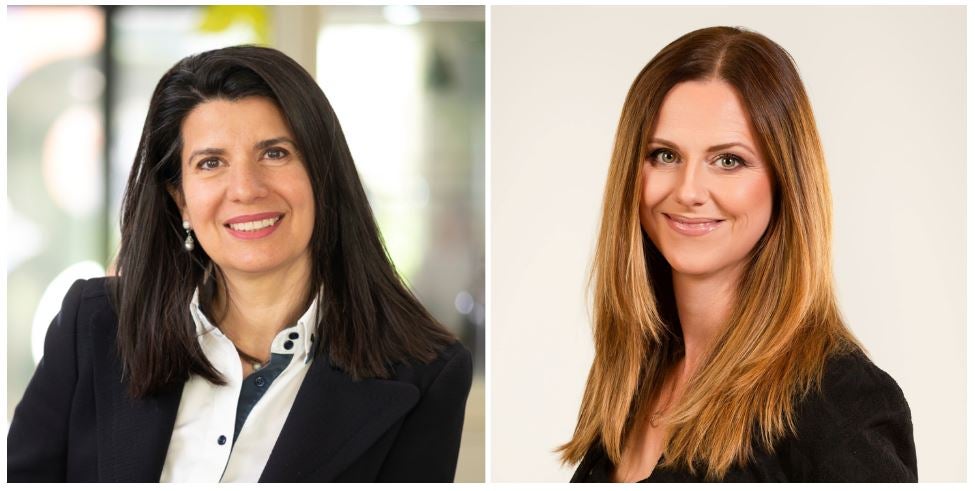up despite the deepening recession. Some, however, particularly
those in the construction finance sector, have been hit hard, as
Jason T Hesse
discovers.
despite small dips in profits, remain relatively strong.
Volvo Financial Services (VFS) said it
financed 11,966 new units, worth SEK11.9 billion (€1.1 billion) in
the fourth quarter last year, representing a small dip of 2 percent
year-on-year.
Total new financing for 2008 reached SEK44.5
billion, which represents a rise of around 7 percent on 2007. VFS’
average penetration rate also grew, reaching 27 percent of sales,
up from 24 percent in 2007.
In its annual report, VFS said that
write-offs, delinquencies and repossessions were higher than in
recent years, and had increased more acutely in the last two months
of 2008 in both North America and Europe.
“[We] are heavily focused on downturn
management activities, including collection of delinquent accounts,
repossession of assets where necessary and their subsequent
remarketing and liquidation,” VFS said. The lessor wrote off SEK211
million in the fourth quarter.
Return on equity fell to 12.6 percent, down
from the yearly high of 16.2 percent achieved in the first quarter
of 2008.
“We continue to provide vital financial
services to Volvo Group customers and dealers while maintaining
strict credit policies,” the company added. “At the same time, we
attempt to capitalise on the opportunities afforded by the
downturn.”
How well do you really know your competitors?
Access the most comprehensive Company Profiles on the market, powered by GlobalData. Save hours of research. Gain competitive edge.

Thank you!
Your download email will arrive shortly
Not ready to buy yet? Download a free sample
We are confident about the unique quality of our Company Profiles. However, we want you to make the most beneficial decision for your business, so we offer a free sample that you can download by submitting the below form
By GlobalDataGrowing portfolios
At the same time, competitor Scania
Financial Services saw its customer finance portfolio grow by 23
percent to reach SEK47.2 billion by the end of 2008.
Its total financing volume was SEK23.8
billion, up from SEK21.1 billion, with a penetration rate of 36
percent in the countries where Scania has its own financing
operations.
Operating income at the financial services
group reached SEK414 million, thanks to “fast-growing markets”.
“It was an extremely challenging year with
unprecedented levels of global credit market disruption in the
fourth quarter”
Income at the group gradually fell quarter by
quarter, however – from €13.4 million in the first quarter, to
€11.5 million in the second, to €7.4 million in the third, and
finally €4.2 million in the fourth.
The company also saw a rise in bad debt: “The
number of delayed payments rose generally during the year,” said
Scania. “Higher bad debt expenses were attributable to several
markets, especially Germany.”
Scania estimates that long-term prospects for
growth remain good, although “due to the current difficult market
conditions, the uncertainty for the coming quarters is high”.
Continuing upward
However, Porsche, whose recent purchase of a
majority stake in Volkswagen triggered a mandatory takeover offer
of the Scania group, saw its financial services business continue
to grow, albeit modestly.
Porsche Financial Services saw revenue rise by
around 2 percent to reach €410 million. The captive wrote 34,000
more new contracts in 2008 compared to the previous year, with
subsidiaries managing more than 76,000 financial services
agreements worldwide.
Capital expenditure at the captive was 8.3
percent lower than 2007, amounting to €573.9 million, attributed to
the increase in business volume.
It is not known what effect – if any –
Porsche’s majority stake in Volkswagen will have on its financial
services division.
In the construction industry, CAT Financial
Services reported record revenues of $3 billion (€2.3 billion), up
only $1 million on last year. Profit after tax was, however, 22
percent down, at $385 million.
“It was an extremely challenging year with
unprecedented levels of global credit market disruption in the
fourth quarter,” said Kent Adams, who is both CAT Financial
president and also vice-president of Caterpillar.
“CAT Financial’s past dues and write-offs
increased as the global economy continued to deteriorate in the
fourth quarter.”
Pre-tax profit was down $223 million, which
the company said was principally due to “a $105 million impact from
decreased net yield on average earning assets and a higher
provision expense of $95 million primarily related to deteriorating
global economic conditions”.
It was not all doom and gloom at CAT FS
though, as new retail financing grew 13 percent on 2007, to reach
$16 billion.
“Although borrowing costs were higher, CAT
Financial maintained access to liquidity throughout the year and
continues to be a reliable source of financing for Caterpillar
customers and dealers,” Adams added.
Hard-hit Deere
In its first quarter of its new financial
year, John Deere Financial Services has continued to be hit hard by
the economic turmoil, reporting net income of $47 million this
quarter, down from $98 million in the first quarter last year.
Net revenue in the financial services business
was $567 million for the three months ending on January 31,
compared with $633 million year-on-year.
“[The results] were lower primarily due to
narrower financing spreads, lower commissions from crop insurance
and a higher provision for credit losses,” the company said.
With company equipment sales projected to be
down 8 percent this year, full-year income for John Deere FS is
forecast to be approximately $250 million, down from 2008.
Meanwhile in the technology sector, Cisco
Capital originated around $2.1 billion in lease arrangements in the
first half of its fiscal year, giving the company a combined
balance sheet and liability position of around $4.4 billion.
Commenting on the results, Frank Calderoni,
Cisco’s CFO, said: “We have continued to see positive payment
behaviour from our customers and will continue to monitor that
closely and believe there has been no material impact to the
quality of our portfolio.”
Meanwhile, at Hewlett-Packard’s captive, HP
Financial Services, revenue decreased 1 percent year-on-year in its
first quarter, to reach $636 million. Of this revenue, it generated
an operating profit of $41 million, or a margin of 6.4 percent.
Financing volumes, of which a third can be
attributed to the EMEA region, were up 2 percent year-on-year.
“The overall portfolio is performing well, and
we continue to apply the same rigorous process for assessing the
creditworthiness of our customers and the quality of our
receivables,” said Cathie Lesjak, CFO for HP. “We are encouraged by
the growth in our financing volume despite a currency
headwind.”
Cross-sector also
affected
Among the larger cross-sectoral lessors,
despite seeing total assets rise by 6 percent to €12 billion,
Siemens Financial Services (SFS) saw its first quarter pre-tax
income fall 14 percent year-on-year, to €66 million (down from €77
million in Q1 2008).
New business at SFS was up year-on-year,
reaching €188 million, although slightly lower than the €193
million the lessor achieved in the last quarter.
“[Pre-tax income] declined, due primarily to a
significant increase in reserves for the commercial finance
business,” said Siemens. “This was partly offset by a higher profit
in the equity business.”
At 23.4 percent, return on equity at the
German lessor is still above its target of 20 to 23 percent,
although considerably lower than the ROE it achieved in the first
quarter of 2008, of 35.7 percent.
Bucking the trend
In announcing its annual results, French bank
Société Générale said that its finance arm, SG Equipment Finance,
generated €9.3 billion of new financing in 2008, an increase of 7.2
percent on 2007.
The lessor performed exceptionally well in the
Czech Republic (increasing 17.9 percent), as well as in France
(+7.5 percent), Germany (+5.8 percent) and Scandinavia (+3.6
percent).
In response to the “depressed economic
environment”, SG Equipment Finance said it had adopted a more
selective approach to clients, in order to maintain profitability.
Return on equity stood at 11.4 percent in 2008, a slight dip from
12.1 percent the previous year.
Its vehicle leasing and fleet management arm,
ALD Automotive, also performed well, confirming its ranking as the
second-largest European fleet lessor, with 786,500 vehicles under
management.
Here too, growth was driven by France and
Germany, both of which grew 5.4 percent and 9.1 percent
respectively. Emerging markets saw dramatic growth, with India,
Brazil and Poland growing 61.2 percent altogether.
However, the vehicle lessor acknowledged that
it was being hurt by the decrease in the second-hand vehicles
market, with “substantially lower volumes and prices”.
“To remedy this situation, the business line
has focused on the development of alternative resale channels and,
at the same time, reduced its entities’ break-even point,” the
company said.
Banque PSA Finance, Peugeot-Citroën’s captive
finance arm, also posted solid results, growing revenue by 4.5
percent, to total €2.1 billion in 2008.
The captive lessor increased its market share,
reaching 27.3 percent, compared with 26.1 percent in 2007. However,
operating income fell 8.4 percent, to €557 million from €608
million the previous year.
According to the company, the strongest gains
in Western Europe were made in Slovakia (up 30.7 percent), Poland
(up 17.5 percent), Austria (up 11.4 percent), and Germany (up 6.5
percent).
The lessor also strengthened its collection
processes in Southern Europe and the UK, in a bid to counter the
effects of the recession. In particular, the company said it had
“increased specialisation, centralised collection flows and
proactively managed loan defaults”.
The captive’s financing is currently a mix of
bank facilities (40 percent), capital markets (39 percent) and loan
securitisations (21 percent).
“[Our] balance sheet remains solid, thanks to
effective risk management and the limited impact of refinancing
costs despite the liquidity crisis,” PSA said. “We have €6 billion
in undrawn credit lines and are maintaining a European capital
ratio of over 11 percent.”







